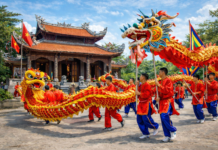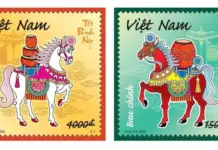 |
New Zealand’s intelligence agency, the Security Intelligence Service (SIS), has released a report detailing the country’s security threats, specifically calling out foreign interference and cyber-attacks as significant concerns. The report, “New Zealand’s Security Threat Environment,” highlights malicious activities by several nations, with a particular focus on the sophisticated nature of certain attempts that pose a risk to the country’s sovereignty.
As a member of the Five Eyes intelligence-sharing network, alongside the US, UK, Australia, and Canada, New Zealand finds itself entangled in the escalating rivalry between the West and China. The timing of the report’s release coincides with the country’s ongoing discussions on navigating the complexities of this geopolitical competition.
While acknowledging the global nature of foreign interference, the report and New Zealand’s Director General of Security, Andrew Hampton, emphasize the difficulty in tracing such activities directly back to foreign states. Transparency, they assert, is crucial, but the intent is not to cause public alarm.
The spectre of foreign interference is not new to New Zealand, with a notable incident occurring in March 2024. The New Zealand government expressed concerns over a cyber-attack allegedly perpetrated by Chinese state-sponsored hackers in 2021, targeting the country’s Parliament. This incident, along with similar cyber espionage activities condemned by the US and UK, underscored the effectiveness of Five Eyes collaboration.
New Zealand’s security services paint a picture of a nation vulnerable to foreign interference from authoritarian states, particularly China. This is further exacerbated by the country’s close economic ties with China, with New Zealand being its largest trading partner in dairy, meat, and wood products. Prime Minister Christopher Luxon has been candid about recalibrating foreign policy, acknowledging the need to balance economic benefits against emerging national security risks.
A striking revelation in the SIS report is the disclosure that seven New Zealand citizens provided training to China’s military, deemed a “major national security risk.” These individuals, with backgrounds in the New Zealand Defence Force or related industries, allegedly transferred knowledge and skills acquired through their involvement in Western military operations.
Additionally, the report highlights that New Zealand’s exposure to foreign interference extends beyond cyber-attacks. The country’s openness and size make it a desirable target for influence operations from nations seeking to exert their power in the Indo-Pacific region, where New Zealand has fostered deeper ties with countries like India and Southeast Asian nations.
New Zealand’s concerns echo those of its Five Eyes allies, Australia, the US, and the UK, who have all accused China of utilizing state-sponsored hacking groups to target democratic institutions globally. In response, New Zealand has increased cooperation with its intelligence partners while urging China to refrain from cyber espionage.
The country’s direct language regarding China marks a shift from its traditional diplomatic stance, reflecting a global trend as more nations confront the implications of China’s growing technological and military might. Foreign interference, as underscored by the SIS report, is an evolving threat, and New Zealand’s pivot toward closer alignment with its Five Eyes partners signifies a fundamental change in its approach to security and diplomacy.
As New Zealand navigates these challenges, the key lies in maintaining a delicate balance between economic ties with China and safeguarding its sovereignty in an ever-changing geopolitical landscape.








